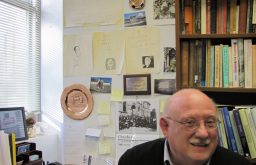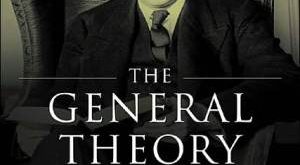When should we trust science? .[embedded content] Using formal mathematical modelling, mainstream economists sure can guarantee that the conclusions hold given the assumptions. However the validity we get in abstract model-worlds does not warrant transfer to real-world economies. Validity may be good, but it isn’t — as Nancy Cartwright so eloquently argues — enough. From a realist perspective, both relevance and soundness are sine qua non. In their search...
Read More »Teaching heterodox microeconomics
Clearly, neoclassical economists believe that neoclassical microeconomic theory is theoretically coherent and provides the best explanation of economic activity; therefore there is no good reason to not teach it, if not exclusively. Many heterodox economists also broadly agree with this position, although not with all the particulars. However, sufficient evidence exists showing that as a whole neoclassical microeconomic theory is theoretically incoherent and without empirical...
Read More »Der Himmel über Berlin
Der Himmel über Berlin .[embedded content] Watching Peter Handke’s and Wim Wenders’ masterpiece — a movie that touches my heart more than any other — takes me back to the city I learned to love already back in the 1970’s. Als das Kind Kind war, ging es mit hängenden Armen, wollte der Bach sei ein Fluß, der Fluß sei ein Strom, und diese Pfütze das Meer. Als das Kind Kind war, wußte es nicht, daß es Kind war, alles war ihm beseelt, und alle Seelen waren...
Read More »What is wrong with modern economics?
What is wrong with modern economics? It is simply that modern economists persist in insisting that a set of tools be everywhere adopted that are mostly inadequate to social analysis, given the nature of social phenomena … To put the matter bluntly (the pun may be useful), it is like attempting to cut the grass with a hammer or a piece of paper. The latter objects have their uses, but mowing the lawn is not one of them. Methods of applied mathematics of the...
Read More »A milestone in the history of human rights
A milestone in the history of human rights .[embedded content]
Read More »La Grande Bellezza
[embedded content]
Read More »Una farfalla che muore sbattendo le ali
Una farfalla che muore sbattendo le ali [embedded content]
Read More »Best advice to an aspiring economist — don’t be an economist
Best advice to an aspiring economist — don’t be an economist And still, amidst all this tumult, many economists are disinclined to rethink the foundations of their field. It reminds me of the closing joke in Woody Allen’s film Annie Hall. A guy has a crazy brother who thinks he is a chicken. The doctor asks, ‘Why don’t you turn him in?’ The guy replies, ‘I would, but I need the eggs.’ ” Why is the free-market discourse so perdurable despite so many...
Read More »Bab’Aziz
.[embedded content]
Read More »It’s time to tax the Wall Street casino!
It’s time to tax the Wall Street casino! Speculators may do no harm as bubbles on a steady stream of enterprise. But the position is serious when enterprise becomes the bubble on a whirlpool of speculation. When the capital development of a country becomes a by-product of the activities of a casino, the job is likely to be ill-done.The measure of success attained by Wall Street, regarded as an institution of which the proper social purpose is to direct new...
Read More » Lars P. Syll
Lars P. Syll





